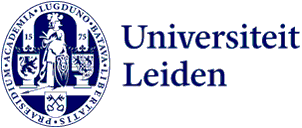
How should the next Dutch government approach national defence?
What defence strategy should the Dutch government adopt for the next four years? Our experts advise investing in social resilience, strengthening ‘soft power’ and integrating defence awareness into education.
After decades of defence cuts, Annelies van Vark, a PhD candidate at the Van Vollenhoven Institute, welcomes the recent increase in defence spending. But we also need to invest in societal resilience, she says. ‘Society is ill-prepared for crises, whether military or hybrid threats [e.g. disinformation and cyber attacks, Ed.] or natural disasters such as flooding. The new government should enhance coordination around societal resilience by expanding the role of the National Security Council.’
Voluntary defence
In times of crisis, the government cannot be everywhere. Citizens must be ready to support themselves and one another. ‘That’s why Scandinavian countries have voluntary defence organisations whose members can offer first aid, extinguish fires and maintain communication during a power outage. Finland even has a grain reserve that can feed its population for nine months. Just like air-raid shelters, those kinds of supplies can be aspects of societal resilience.’
Rapidly expand armed forces
Alongside a resilient society, you also need a defence force that is capable of rapid expansion in the event of a crisis, Van Vark adds. ‘Then you need more professional soldiers and reservists. The Ministry of Defence is already taking steps by asking all 17-year-olds and newcomers to complete a voluntary survey about military service. But you also need agreements with civilian parties that can provide support: for example, by reserving product lines for defence or allowing employees who are reservists to train regularly.’
Diplomacy and development aid
Professor by Special Appointment of Military Studies, Martijn Kitzen, is also positive about the recent increase in defence spending. ‘The next government will have to build on that, but they do need to see the bigger picture. It’s short-sighted to cut funding for diplomacy and development aid. These are crucial to maintaining our global position. The Cold War wasn’t won by military might alone – it was soft power that made the difference.’
Development aid plays a key role in ensuring people receive accurate information. In recent research in West Africa, Kitzen saw Russian disinformation campaigns. ‘Russian sources portray the West as wanting to exploit Africans and Russia as a protector. In reality, Russia is largely self-serving, focusing on access to resources like mining. Encouragingly, several political parties have pledged to invest in diplomacy and development aid in their election manifestos, so there is hope it will actually happen.’
Independence
Kitzen also believes the new government should help strengthen the European pillar within NATO. ‘For the Netherlands, that means investing in both our army and our defence industry, so we’re not reliant on the United States for weapons.’
Legal reform is needed to ensure the military can prepare for war. ‘New army units struggle with electronic warfare exercises because with much of what they do they risk breaching the GDPR [law protecting personal data, Ed]’, he notes. ‘We must protect our personal freedoms, but also find a balance that allows effective training.’
Education
A final point on both Van Vark and Kitzen’s lists is to integrate defence topics into education. For Van Vark, increasing people’s ‘digital literacy’ is part of building a resilient society. ‘You want a population that recognises disinformation. That’s vital for social cohesion and trust in government.’
Kitzen agrees, ‘People need to understand what’s at stake. It should be everyone’s concern, not just the responsibility of the Ministry or political parties. Then we’ll all be better equipped to protect ourselves.’
